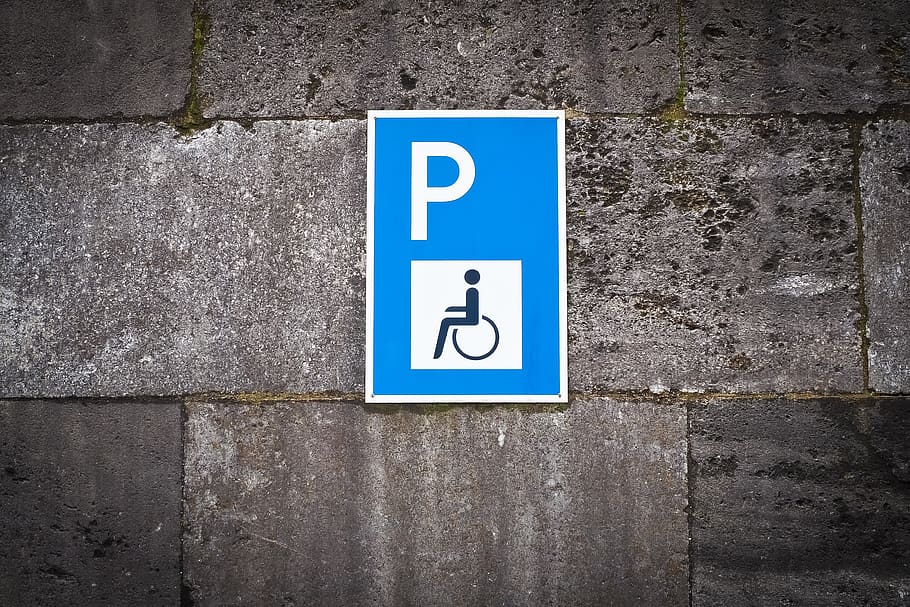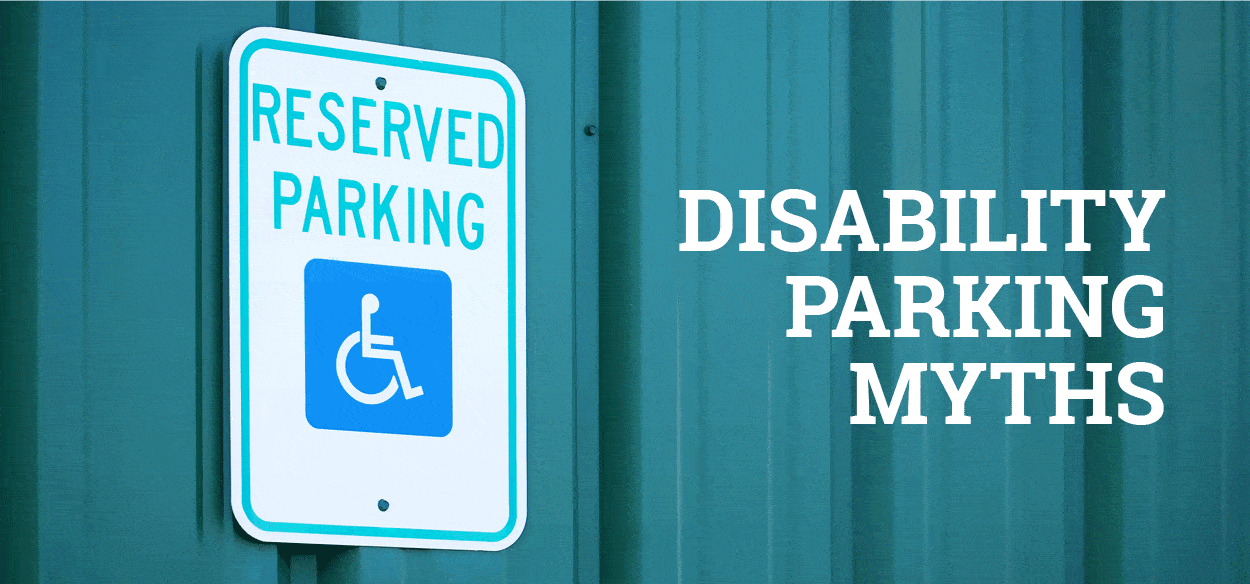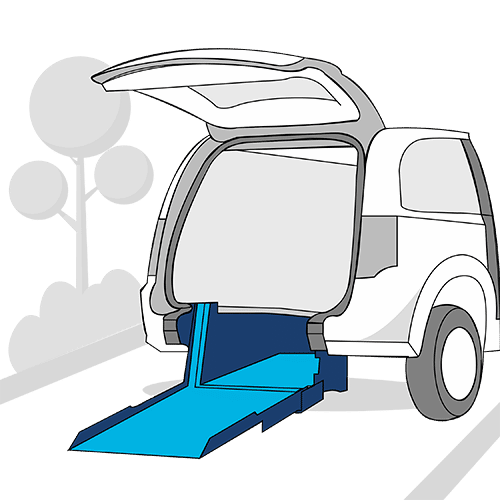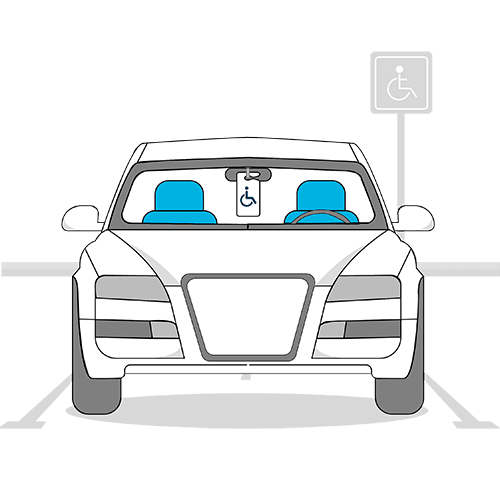Disability parking permit holders are eligible for certain allowances and entitlements to accommodate their accessibility needs. It benefits many people, young and old, all around the country. However, disability parking myths still persist. There are lots of misunderstandings about the Australian Disability Parking Scheme and beyond it.
Blue Badge Insurance decided to do some research and bust a few common disability parking myths. So, once and for all, here are the key facts about disability parking permits (DPPs).
Myth 1. Only wheelchair users qualify for a disability parking permit
One of the most common disability parking myths is that only people who use a wheelchair are eligible for a DPP. This has led to many instances where people with valid permits have been challenged for using accessible parking spaces because they don’t “look disabled”.

But not all disabilities are visible to the untrained eye
It happens all the time. Read about it in our Invisible Disabilities Week 2021 survey article.
It’s important to remember that there are a host of illnesses that cause mobility issues. Some of these may not necessitate the use of a wheelchair. They may not even be obvious to an onlooker, hence the term ‘invisible disabilities’.
People living with invisible disabilities can be dealing with chronic pain, poor vision, fatigue and balance problems. Like what happens with Parkinson’s disease. So rather than judging someone based on how they look, judge them on their parking permit.
Accessible parking spaces are for anyone with a valid permit. Regardless of appearance. After all, you can’t know everything about someone just by looking at them. Read how invisible disability has the potential to affects mobility.
Myth 2. You can buy a disability parking permit
We’ve all heard stories of people using someone else’s permit or inappropriately acquiring permits to cheat the system. The reality is these people represent a very small percentage of all permit holders.
Most people have a permit because they really need it. Don’t let the actions of a few influence your opinion of the majority of people who genuinely require their permit.
The Australian Disability Parking Scheme has been designed for people with genuine mobility restrictions. That means that permits aren’t given out lightly. And you can be certain they’re not available for sale to whoever is willing to pay.
While there are different criteria in each state/territory, people must have a legitimate mobility restriction and provide a doctor’s certificate to qualify for their permit.
Not convinced? Why not read how disability parking permits have been designed to reduce fraud. And while you’re at it, also find out how to get a disability parking permit in Australia.

Myth 3. Any family and friends can use your disability parking permit
Another common disability parking myth is that anyone connected to the permit holder can use their permit – anytime. While a lot of people believe a permit holder’s friends and family can do this the law is pretty clear. It’s illegal for anyone to use a disability parking permit unless the permit holder is travelling with them in the car.
So yes, your family and friends can use the permit if they’re driving you somewhere in your car. But they can’t use your permit without you. Not even if they’re running an errand for you or visiting you in the hospital. If they do, they could end up with a fine for misusing the permit.
Myth 4. Disability parking permit holders can park anywhere for free
Permit holders are given some concessions in public parking spaces. For example, increased time in most time-limited public parking spaces. And they do obviously have access to designated accessible parking spaces.
But the disability parking myth that DPP holders can park wherever they want, whenever they want, without any cost, is simply not true. Permit holders can’t park wherever they want. For example, parking isn’t allowed in clearways, taxi/bus zones, authorised resident areas, or in no parking or no stopping areas.

Myth 5. Permits are free
Some pensioners and minors may qualify for a free disability parking permit, but in most situations people need to pay a fee for their permit. The fees and charges vary in each state/territory. So, it’s best to check with the authority in your area to find out what applies to you.
And while we’re talking about fees and concessions, check out our disability discounts article. You might find some savings!
Myth 6. All disability parking permit holders have it for life
Once again, there are different rules applicable in each state/territory. But regardless of where you live in Australia, you do need to renew your permit every so often. As you can see, there’s no such thing as disability parking permits issued for life.
Permits usually have to be renewed every three to five years. It’s illegal to use an outdated permit. Using an expired permit could result in some pretty hefty fines.
Myth 7. You can’t use your permit when you travel interstate
Another disability parking myth busted! You don’t need to be worried about whether travelling interstate voids your permit. If you have a disability parking permit you can use it anywhere in Australia.
However, laws around exactly what it will provide for you while there do change from state to territory. It’s important to check parking rules in the jurisdiction you’re visiting.
And if you’re relocating permanently you must re-apply for a permit in your new state/territory. Read more about taking your permit interstate.

Myth 8. Insurance is more expensive for disability permit users
Disability parking permit holders often struggle with car insurance. Finding cost-effective insurance with the right coverage can be difficult. This is often the case for converted cars for drivers or passengers with a disability. Read our article ‘is disability car insurance more expensive‘ to see why (and avoid underinsurance).
Most general insurers don’t understand disability. As a result, they often quote higher premiums because they consider disability permit users to be higher-risk drivers. This is a good reason for comparing car insurance before signing on the dotted line.
Blue Badge Insurance gives you discounted car insurance
As Australia’s first independence and disability insurance specialist, we know all about disability parking and disability converted vehicle myths. And we insure you accordingly.
Disability parking permit holders are generally safer drivers so we reward them with lower car insurance premiums. Plus we ensure the cover provides the breadth of protection needed.
Find out more about our disability car insurance for disability parking permit holders here.








